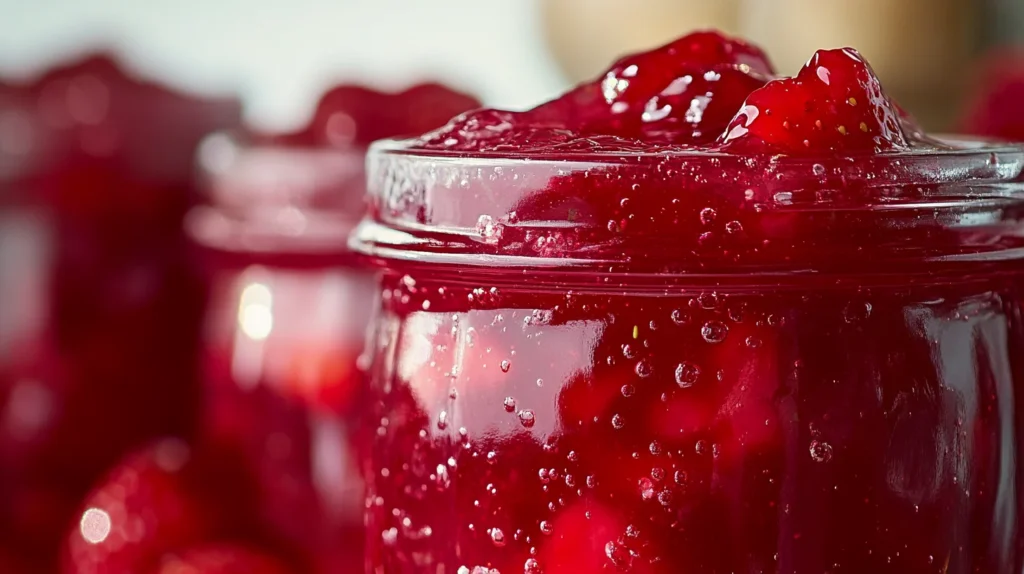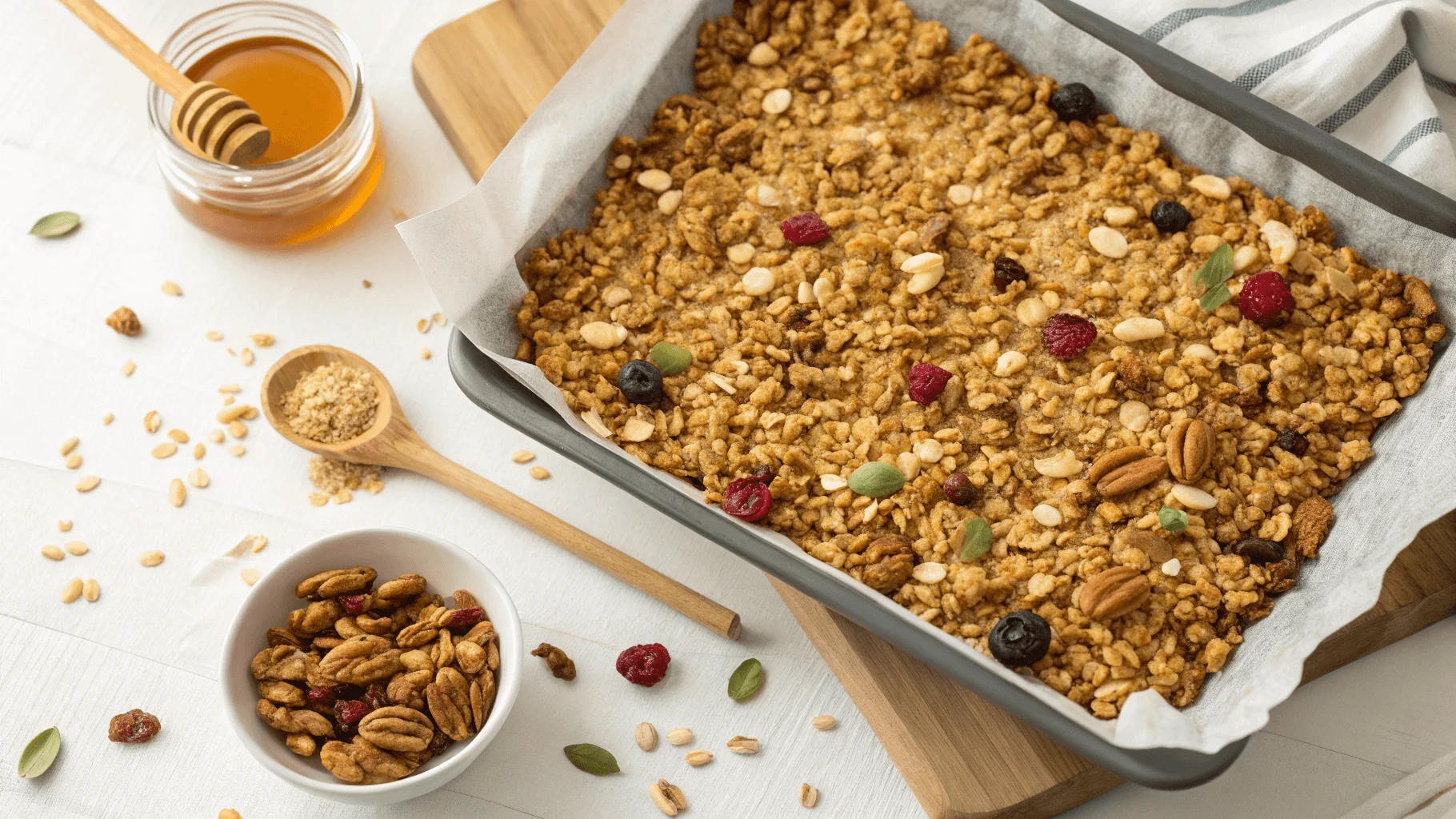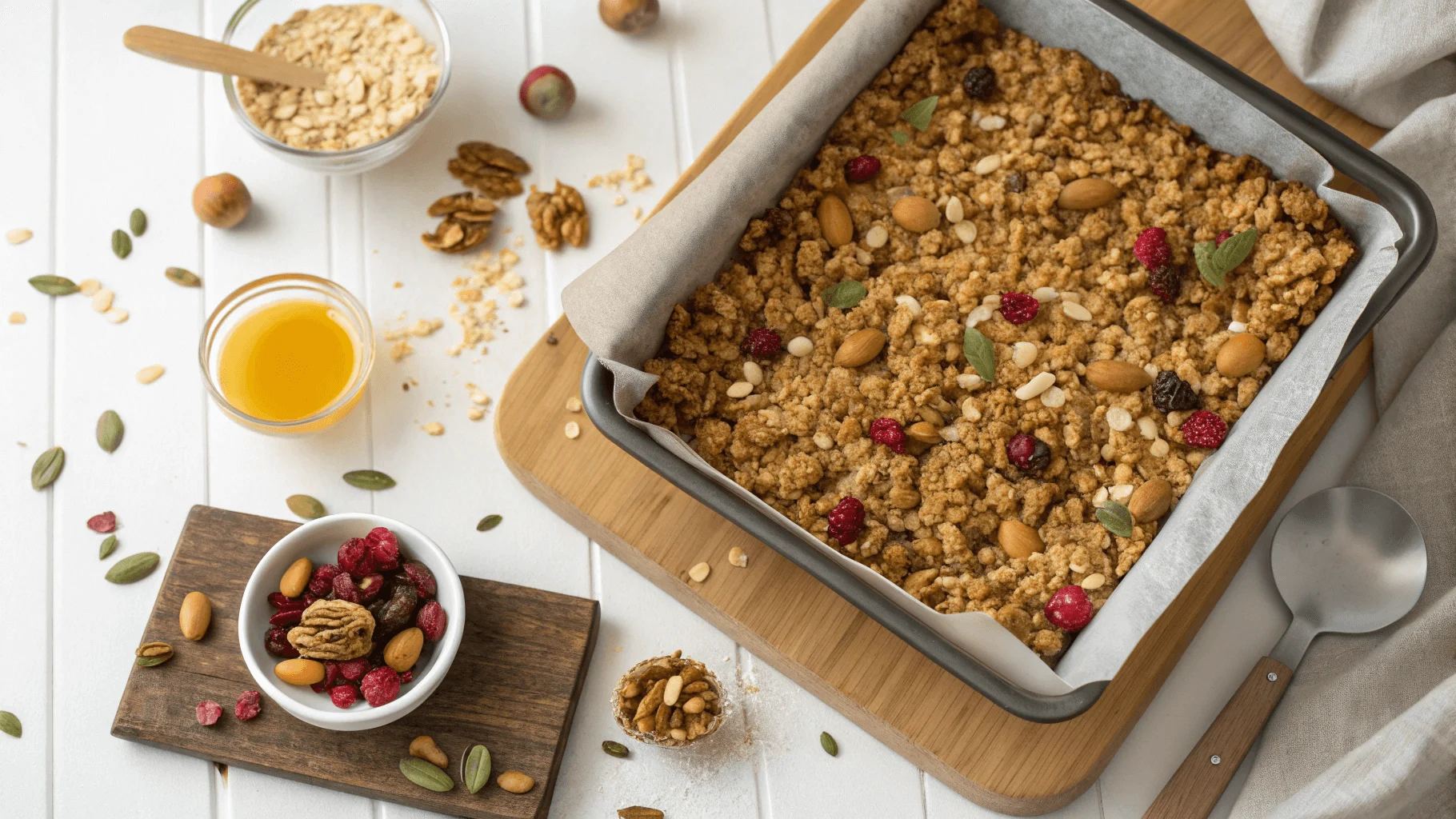Freezer jam is a popular method for preserving fruit, and it offers a quick and easy way to enjoy the fresh flavors of summer throughout the year. One key ingredient that often comes up in freezer jam recipes is lemon juice. It plays a crucial role in both the texture and the taste of the jam, enhancing its preservation qualities and adding a refreshing flavor balance. This article will explore everything you need to know about lemon juice to freezer jam, from its basic role to more complex chemical interactions.
The versatility of lemon juice in freezer jam-making extends beyond its acidity. It not only helps the jam to set properly but also provides a zesty kick that complements the natural sweetness of the fruit. Whether you’re making strawberry, raspberry, or blueberry freezer jam, lemon juice is a vital ingredient that should not be overlooked. Read on to discover how to use lemon juice effectively in your freezer jam recipes.
The Basics of Freezer Jam and How Lemon Juice Plays a Role
Freezer jam is a simplified version of traditional jam that involves minimal cooking. Instead of boiling the fruit and sugar mixture to thicken it, freezer jam uses pectin, a natural thickening agent activated by acid—often lemon juice. The primary advantage of freezer jam is that it retains more of the fresh fruit flavor, color, and nutrients, unlike conventional jams that cook at high temperatures.
To make freezer jam, crush or puree the fruit and mix it with sugar, pectin, and an acidic ingredient like lemon juice. Place the mixture into jars or containers and store it in the freezer. This method provides a convenient way to preserve seasonal fruits and enjoy them throughout the year with minimal effort.
How Lemon Juice Helps Set Freezer Jam: The Science Behind Pectin and Acidity
When it comes to freezer jam, lemon juice is much more than just a flavor enhancer. It plays an essential role in helping the jam to set and thicken. The acid in lemon juice helps to activate the pectin, which is the key ingredient that causes the jam to gel. Without sufficient acidity, the pectin won’t work effectively, and your jam may remain runny or fail to set entirely.
Moreover, lemon juice acts as a natural preservative. The citric acid it contains helps to reduce the pH level of the jam, creating an environment that inhibits the growth of bacteria and mold. This contributes to the longevity of the jam, allowing it to stay fresh in the freezer for months.
If you’re curious about alternative thickening methods for freezer jam, explore this comparison.
The Chemistry of Pectin and Acidity
Understanding the chemistry of pectin and acidity is key to mastering freezer jam-making. Pectin is a carbohydrate found in fruit, especially in the skin and core of apples, citrus fruits, and berries. For the jam to set properly, pectin needs to bind with sugar in the presence of acid. This is where lemon juice comes into play.
Lemon juice lowers the pH of the fruit mixture, which is essential for pectin to properly form a gel. When sugar, acid, and pectin are balanced, pectin molecules link together, forming a firm, spreadable jam. If the pH is too high or low, the jam may not thicken, resulting in a runny or firm texture.
Practical Tips for Adding Lemon Juice to Freezer Jam
When making freezer jam, it’s important to use lemon juice correctly to achieve the desired results. Here are some practical tips to keep in mind:
- Use fresh lemon juice: Freshly squeezed lemon juice contains more acidity than bottled versions and can enhance the setting process.
- Measure accurately: Follow the recipe instructions carefully to ensure you’re using the correct amount of lemon juice. Too much can overpower the flavor, while too little may affect the jam’s consistency.
- Balance with sugar: The sweetness of the sugar helps to balance out the acidity of the lemon juice, ensuring the jam isn’t too tart.
For additional guidance on preserving fruits with optimal methods, you might want to read about how freezing strawberries can enhance jam-making.
Benefits Beyond Chemistry: Enhancing Flavor with Lemon Juice
Lemon juice is crucial for freezer jam’s chemistry and significantly influences the overall flavor, enhancing its taste and balance. Lemon juice brings a burst of fresh, tangy flavor that complements the sweetness of the fruit. This balance of tart and sweet is what makes freezer jam so irresistible.
Lemon juice enhances flavor and brings out the natural brightness and complexity of the fruit used in the jam. For example, in strawberry jam, the acidity of the lemon accentuates the fresh, fruity taste without overpowering it. In berry jams, lemon juice adds depth to the flavor and prevents the jam from tasting overly sugary or flat.
For insights on creating the best-tasting jam, check out this exploration of strawberry freezer jam techniques.
History of Freezer Jam and Its Evolution
Freezer jam has been around for decades, and its popularity has steadily grown due to its simplicity and convenience. The idea of preserving fruit without cooking gained popularity in the mid-20th century, with pectin-based freezer jam recipes.
Lemon juice has always been key in these recipes, activating pectin and enhancing flavor from the very beginning. Advancements in freezer technology and pectin formulations have made it easier than ever to make freezer jam at home. Today, the process is accessible, allowing people to enjoy homemade fruit preserves without canning or complicated cooking techniques.
How Lemon Juice Preserves Freezer Jam
One of the key functions of lemon juice in freezer jam is its role in preservation. The acidity of lemon juice prevents harmful bacteria and molds, keeping the jam fresh in the freezer for extended periods. Freezer jam is ideal for preserving seasonal fruits, letting you enjoy them long after they’re no longer in season.
Lemon juice acts as a natural preservative by lowering the pH, slowing oxidation, and helping the jam retain its color. This is especially important for fruit jams like strawberry or blueberry, where maintaining the bright red or blue color is essential.
Comparing Fresh Lemon Juice vs. Bottled Lemon Juice
When choosing between fresh lemon juice and bottled lemon juice for freezer jam, fresh is generally the better option. Fresh lemon juice contains higher levels of citric acid, which is crucial for the proper gelling of the jam. Bottled lemon juice, on the other hand, may contain added preservatives and may have a less potent acidity.
While bottled lemon juice can be a convenient alternative in a pinch, using fresh lemon juice will provide the best results, both in terms of flavor and chemistry. If using bottled lemon juice, check the label for added ingredients, and consider using a little extra to compensate for the weaker acidity.
The Impact of Lemon Juice on Nutritional Value
In addition to its functional role in freezer jam, lemon juice can contribute some nutritional benefits. It’s an excellent source of vitamin C, which is important for immune health and skin maintenance. While the amounts of lemon juice used in freezer jam may be small, it still adds a bit of nutritional value to the finished product.
Moreover, lemon juice is low in calories and contains no fat or cholesterol, making it a healthy addition to your jam. It’s also rich in antioxidants, which help combat oxidative stress and may have anti-inflammatory effects. This means that in addition to enjoying the sweet taste of homemade freezer jam, you’re also benefiting from the health properties of lemon juice.
The Importance of pH Levels in Jam Making
The pH level of the fruit mixture is critical when making freezer jam. If the pH is too high, the pectin won’t work effectively, leading to runny jam. If the pH is too low, the jam may become too firm and jelly-like.
Lemon juice helps to bring the pH of the mixture into the ideal range for pectin to gel properly. This is why it’s so important to use the correct amount of lemon juice in your recipe. For optimal results, aim for a pH level of around 3.0 to 3.5.
Common Myths About Lemon Juice in Freezer Jam
There are several myths surrounding the use of lemon juice in freezer jam. One common misconception is that lemon juice is only needed for flavor and does not affect the texture of the jam. However, as we’ve discussed, lemon juice plays a crucial role in activating the pectin and ensuring the jam sets correctly.
Another myth is that bottled lemon juice is just as effective as fresh lemon juice. While bottled lemon juice can work in a pinch, it’s not as effective as fresh lemon juice in terms of acidity and flavor. Fresh lemon juice will provide the best results for your freezer jam.
Understanding the Role of Sugar Alongside Lemon Juice
Sugar is another key ingredient in freezer jam, and it works in tandem with lemon juice to create the perfect consistency. Sugar not only helps to sweeten the jam but also helps with the setting process by binding with the pectin. However, it’s important to strike the right balance between sugar and lemon juice, as too much sugar can overpower the acidity of the lemon.
When making freezer jam, follow the recipe carefully to ensure that the sugar and lemon juice are in the right proportions
. The correct balance will result in a sweet, tangy, and well-set jam.
Substitutes for Lemon Juice in Freezer Jam
While lemon juice is an important ingredient in freezer jam, there are a few substitutes that can be used if you don’t have it on hand. Some alternatives include:
- Lime juice: Like lemon juice, lime juice has a similar acidic profile and can help activate pectin.
- Citric acid: If you don’t have fresh lemon juice, citric acid can be used to lower the pH level and help the jam set.
- Vinegar: Though not as flavorful as lemon juice, vinegar can be used as a last resort to adjust the acidity of the jam.
While these substitutes can work in a pinch, lemon juice remains the preferred choice for both flavor and acidity.
How Freezer Jam Differs by Fruit Type
The type of fruit you use for your freezer jam can influence the amount of lemon juice required. For example, berries such as strawberries and raspberries tend to have a lower natural acidity, so you may need to use more lemon juice to ensure the jam sets correctly. In contrast, fruits like apples and citrus already have a higher natural acidity, meaning you may need less lemon juice.
By understanding the natural acidity of the fruit you’re using, you can adjust the amount of lemon juice to ensure a successful batch of freezer jam.
Seasonal Fruits Best Suited for Freezer Jam
Freezer jam is an excellent way to preserve seasonal fruits at their peak ripeness. Some fruits that work particularly well for freezer jam include:
- Strawberries: A classic choice for freezer jam, strawberries benefit from the acidity of lemon juice to help set the jam.
- Blueberries: Blueberries are naturally sweet and pair beautifully with the tartness of lemon juice.
- Peaches: Fresh peaches, when combined with lemon juice, create a smooth, flavorful jam.
These fruits are just a few examples of the many seasonal options you can use to make delicious freezer jams.
Troubleshooting Freezer Jam Issues
Even with the best recipes and techniques, things can sometimes go wrong when making freezer jam. If your jam isn’t setting properly, the issue is often related to the pH level or the amount of pectin used. If the jam is too runny, try adding a bit more pectin or increasing the acidity by adding more lemon juice.
On the other hand, if the jam is too firm, it could be due to too much pectin or an overly low pH level. Adjusting the amount of lemon juice or sugar can help correct these issues.
The Environmental Impact of Homemade Freezer Jam
Making homemade freezer jam can have a positive environmental impact. By using fresh, local fruits and avoiding store-bought jams, you reduce the carbon footprint associated with mass production and packaging. Additionally, homemade jam often involves fewer preservatives and artificial ingredients, making it a healthier and more sustainable option.
Freezer jam allows you to take advantage of seasonal produce, reducing food waste and helping to support local farmers.
FAQs
Can I use bottled lemon juice for freezer jam?
Yes, but fresh lemon juice is preferred for its higher acidity and better flavor.
How long will freezer jam last in the freezer?
Properly stored, freezer jam can last up to a year in the freezer.
What happens if I use too little lemon juice in freezer jam?
If too little lemon juice is used, the jam may not set properly and could remain runny.
Conclusion
Lemon juice plays a critical role in making freezer jam. From enhancing flavor to ensuring the proper texture and preservation, lemon juice is an indispensable ingredient in the process. Understanding how to use it effectively, along with balancing it with other key ingredients like sugar and pectin, will help you create perfect freezer jams every time. Whether you’re making jam with seasonal fruits or experimenting with new flavors, lemon juice will continue to be your trusty companion in the kitchen.






3 thoughts on “The Essential Role of Lemon Juice in Freezer Jam Making”